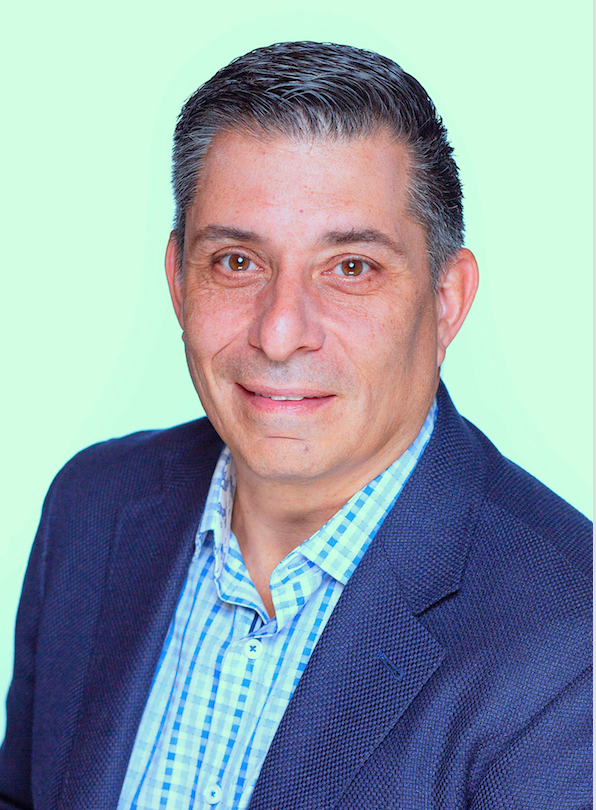A national study released in mid-November by Wells Fargo & Company finds that inflation is cutting into household budgets, with 25% of Americans who invest in the stock market moving investing dollars into everyday essentials like groceries, gas and housing. According to the Wells Fargo study, 58% need money for groceries, 47% for transportation and gasoline, 42% to pay utility bills and 39% to cover debt. However, not all is grim.

“Both the consumer and business customers from what I see continue to be resilient,” Lou Gallo, senior vice president and commercial banking market executive at Wells Fargo, told the Business Journals. Gallo was not involved in the conducting survey. Gallo”™s role with the bank has him concentrating on commercial banking in Westchester, Fairfield and the Hudson Valley. He now has taken on an expanded role to also cover Connecticut and the New York Capital region. He”™ll continue being based at the bank”™s White Plains office. Gallo will oversee three regional offices and manage more than 19 employees who serve companies in the $10 million to $2 billion range.
Gallo said that despite high inflation there is optimism in the marketplace coupled with a need to continue to be careful that has allowed for continued spending.
“Caution going into 2023 is how I would kind of project it and portray it,” Gallo said. “I would say in terms of where we are with Covid and what I”™m seeing specifically in the local communities like Fairfield County and the Hudson Valley and Westchester, the commercial banking, middle market, small-business clients have put it behind them for a while now. They were the ones that were first back to market and in their offices.”
Gallo said that when making calls on clients around the area he is finding that parking lots at office buildings generally are full or close to it. He also said that he”™s noticed attendance is up at networking events.
“They”™re full Monday through Friday and I think that just shows that companies are saying ”˜we have to put this behind us,”™” Gallo said. “Some of those companies are still struggling with staffing and that”™s probably one of their bigger concerns.”
He said he”™s excited by the growth Westchester, Fairfield and the Hudson Valley have been seeing in e-commerce, startups, logistics companies, health care and food distribution.
“The challenges for all of these are labor shortages and increased wages,” Gallo said.
Gallo said that despite lingering effects from Covid and new effects from inflation and economic uncertainty bank clients and would-be customers still are looking for traditional product offerings and traditional service levels from their banks.
“Whether start-ups or businesses that have been around, they are looking for a bank that has flexibility, that has technology, that has in-market experience, that has a local feel,” Gallo said. “Prospects who are walking in and looking to open an account are looking for strong treasury services, technology to move them away from paper and someone who”™s going to be responsive to them and talk to them.”
Gallo said that as the Federal Reserve has pushed up interest rates there has been a big focus on what clients are doing with their excess cash to get the best returns.
“We are all competing for those balances,” Gallo said. “Customers are out there looking for the best rate. For the last 10 years, banks were not paying much in interest rates. It is an opportunity for the business owner to increase returns even though they may have a higher cost of borrowing at the same time because of interest rates.”
Gallo said that inflation and the current changes in interest rates have kept bankers busy because customers are constantly challenging their costs and looking for ways to enhance income.
“How do they get better returns? How do they keep their borrowing costs low? It”™s end-of-year, the time when people would definitely be slowing down. If anything, I see our people being more active and bankers are more active in the market,” Gallo said. “You”™re seeing everybody out in the marketplace.”
Gallo said that feedback he”™s heard from other Wells Fargo bankers around the country indicates that the Northeast markets, including Fairfield, Westchester and the Hudson Valley have held up well because of the types of businesses located there and the strength of clients”™ balance sheets.
“We combine basically local coverage with a broad industry experience that allows us to serve Fairfield, Westchester and the Hudson Valley with a big bank name and a small bank feel,” Gallo said. “From a business standpoint, in the suburbs, I think people are back to work and it”™s not that same big city feel where you”™re struggling to get people back to work. We continue to build our team. We continue to invest in our people and make sure that we”™re serving our clients and the community.”



















